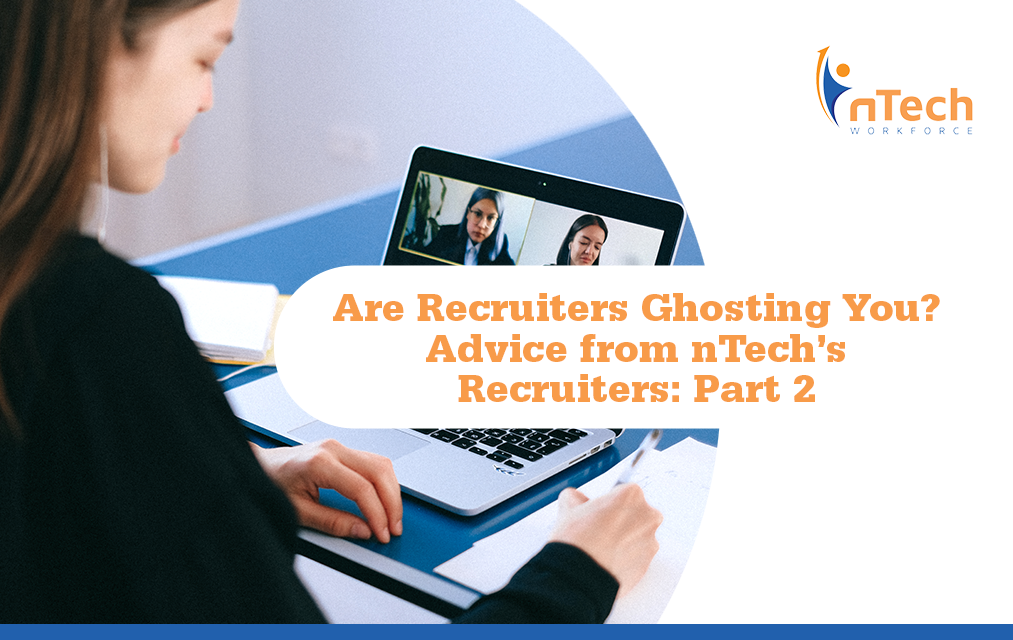What is Recruitment Process Outsourcing (RPO)?
Recruitment Process Outsourcing (RPO) is a solution in which a business transfers its recruitment functions to an external provider. An RPO provider...

This article is the second part of our two-part article series on ghosting. In the last article, we focused on candidate ghosting, i.e., recruiters being ghosted by candidates. In this one, we’ll explore recruiters ghosting candidates.
According to Edgar Andres, Talent Acquisition Specialist at nTech Workforce, “Ghosting from recruiters typically happens when a candidate has gone through the interview process for a role, and the recruiter that was working with them stops responding to their messages, calls, etc.”
Imagine you applied for a job and attended the first screening interview. You were told that you would hear back in two weeks. Three weeks have passed, but no reply. You contact them and receive nothing but silence.
Being ‘ghosted’ by a recruiter usually happens after the screening interview, but it’s even possible after the first or second interview. It is always confusing and disheartening for the candidate.
Often candidates are left with the question, “Why did the recruiter ghost me?” Understanding both sides brings clarity and offers more effective ways of handling the situation.
According to Arthur Ransier, Director of Business Strategy at nTech Workforce, gaps of understanding exist between candidates and recruiters; recruiters don’t respond to everybody who applies to a job posting, but candidates might still consider this to be ghosting. He suggests it's best to have a rule of thumb.
“Give everybody at least as much time as they give you; if they take 1 second to do a one-click apply, I give them a one-click rejection or canned email response; and if they take 20 minutes to fill out a lengthy application or go through an automated test, I will take at least 20 minutes to explain why it may not have worked out, offer a bit of coaching, or make a connection for them.”
Sometimes, it may feel that companies are ghosting candidates if the candidates do not receive an immediate response. Often companies are working through layers of communication for the same role. And it may take longer to get information from those different layers and share the decision with the candidate.
Andres suggests, “Organizations should strive to stay in constant communication with their candidates. Sometimes there is a shift in priorities within the company's hiring processes which the candidate may not be aware of. Candidates might think that the role they interviewed for was the top priority for the company. But the company did not communicate the shift, and the candidate feels ghosted.”
Maintaining consistency and explaining if something changes in the process will set a candidate's expectations about a company’s culture and values. Not only can irregular and slow communication harm a company’s brand and reputation, but an ideal candidate in a competitive market won’t wait around.
Candidates are not completely powerless when it comes to ghosting. Knowing how to be persistent while remaining professional is a key marker of an ideal candidate. Edgar Andres has some great tips for negotiating a situation that might turn into being ghosted.
At nTech, we pride ourselves on never ghosting candidates. We understand that this process might be difficult and disheartening for some candidates, which is why we have provided effective ways to deal with ghosting. At nTech Workforce, we help employers recruit, retain, and engage talented candidates. Our unique solutions are designed to solve hiring, productivity, and diversity challenges.

Recruitment Process Outsourcing (RPO) is a solution in which a business transfers its recruitment functions to an external provider. An RPO provider...

On the whole, we know that as many as50% of candidates don’t work out through no fault of anyone involved. Some jobs just aren’t the right fit....

Understanding the dynamics of commission structures within the staffing and recruiting industry is crucial for businesses seeking talent acquisition...